Berkshire pigs are a heritage breed valued for the flavor of their meat. We raise Berkies to sell as breeding pigs.
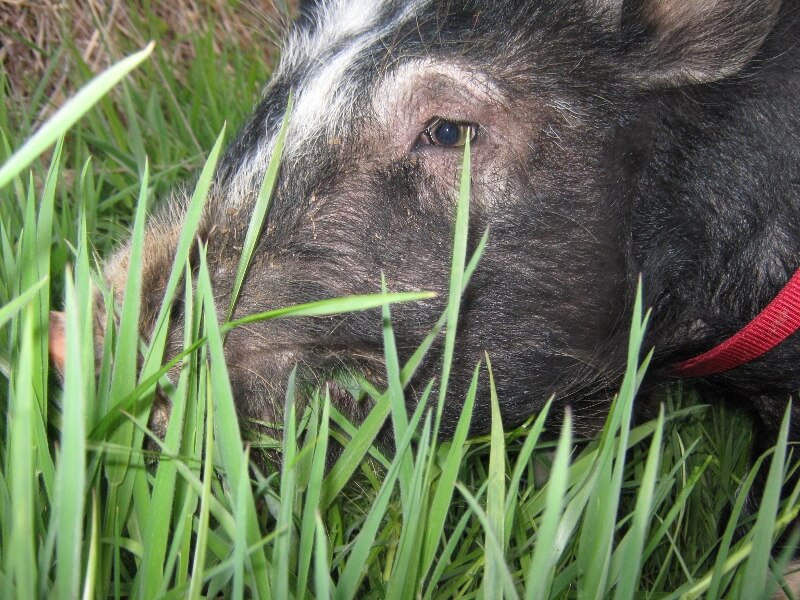
We had thrown the idea around for years of raising pigs. We first talked about raising them for meat production but didn’t know if we would be able to complete the process start to finish.
My husband Alan didn’t like the idea of taking the animals to a slaughterhouse to kill and be packaged. He likes to do his own butchering. When we do it ourselves, he knows the meat is handled properly. Once we learned all the rules and regulations—here in North Carolina, you’re required to take the animal to a certified slaughterhouse—we decided this approach was not for us.
But we still wanted to do something with pigs. We just love everything about Berkies! So we decided we would raise a breeding pair and produce Heritage breed piglets. We raise the animals as naturally as possible. We do not castrate the males, nor do we vaccinate, notch ears, dock tails or cut tusks. We leave them as nature intended.
Since we’re a no-chemical farm, if the pigs they get ill we call a vet and let them administer the needed meds. For feed, we raise them on pasture, with supplemented feed depending on the season. If we have any leftovers from summer berries and vegetables, they go to the pigs. In the fall, the pigs get the Bloody Butcher corn we cull from the crop that we eat ourselves.
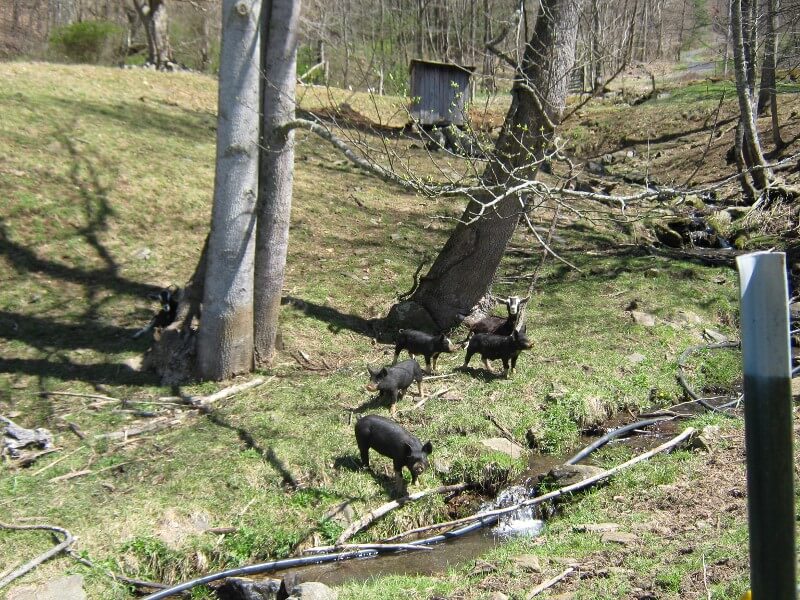
Should You Register Your Pigs?
It depends on what your use of the pig will be. If you will be raising pigs to sell where there is a requirement for registration then, yes, you will need to register. Registration is required for show animals and AI (artificial insemination) breeding. However, if you don’t want to register, you can advertise your pigs as pure breed “without papers.” If the buyers know their breeds, they can look at the animals or photos and know if the pig is pure.
The Berkshire can be recognized by the white feet, white faces, and, usually, white on the tail. There can be some white spots in some parts of their coat, but there’s not much white if a pig is a true Berkshire. Some people will cross pigs and try to pass them off as pure Berkshire. I would question the breed if there is a band of white across the shoulders or belly.
Finding Your Breeding Berkshires
Planning to breed Berkshires is easy. In practice, finding the animals and breeding partners is a challenge.
We found a pure breed female that was produced from AI but the owner did not have the paperwork. We were just glad we found a pure female because we had looked for a long time. We named her Miss Piggy.
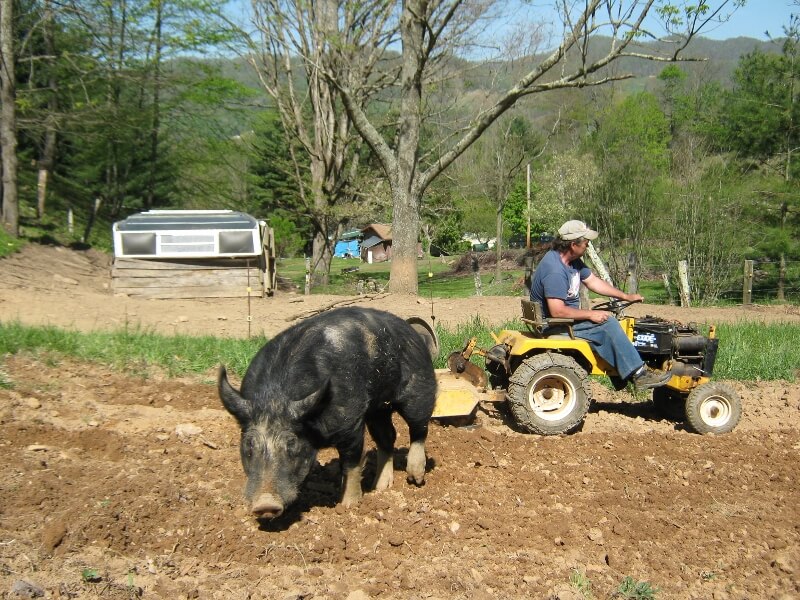
We also wanted a pure, intact male, but these owners didn’t have any stock that were not related. We went ahead and bought a little male that was a brother to our female. We named him Mr. Wiggles. He had been castrated, so we would be able to keep them together. Pigs do better with a companion—if left alone, they suffer from stress.
When our female was of breeding age (more than a year old) we started looking for a male to breed her to. We made all kinds of contacts from pig directories and classifieds. We could not find an intact pure Berkshire male. We looked constantly, because we also know the older the pig gets, the harder it is for her to have her first litter.
In the meantime, Mr. Wiggles was getting too large and we needed to do something with him. Even if a male is castrated, he will still run after the female and aggravate her. Mr. Wiggles started to do so. So we decided we would slaughter him for our winter meat.
We finally found an intact male at a farm about 3 hours drive from our farm. He was just weaned, so this meant another wait until he was old enough to breed with our female.
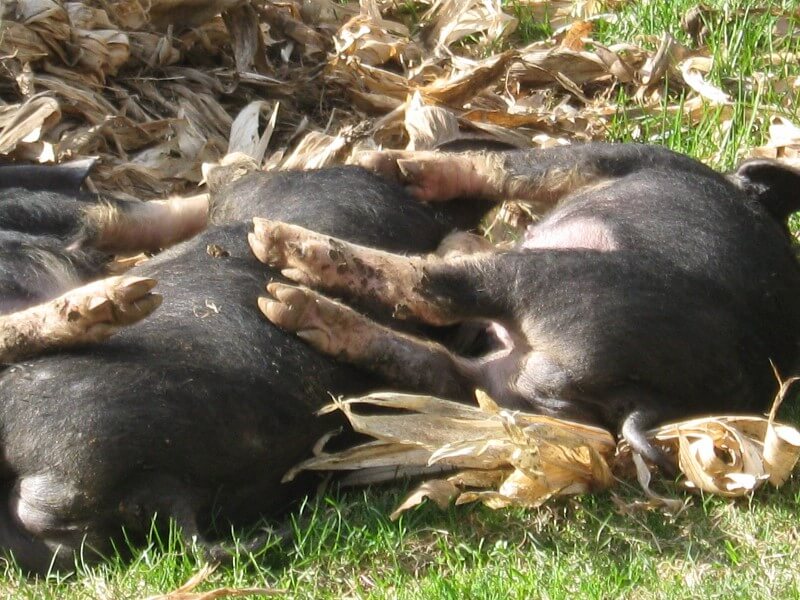
We brought him home and kept him separated from our female. We named him Jethro.
Since the pigs were in different pastures we decided we would train Jethro to harness and lead so we could lead him to Miss Piggy’s pasture when he was old enough.
This is another reason I say Berkshires are the best all-around pig. They are easy to work with and train, and they adapt quickly. They’re great workers: Jethro loves to get out in the field and help move dirt and rocks.
Breeding Berkshires
Once he reached eight months old, Jethro was mature enough to breed with Miss Piggy.
We had to wait until she was in estrus before taking Jethro to her. You have to be careful about the timing because a gilt female—one who hasn’t been bred before—will not accept the male if she is not in full estrus, and she will not stay in estrus for very long. A gilt may stay in estrus for 24-28 hours while a sow—a pig that’s had at least one litter—may stay in estrus up to 3 days.
So Alan harnessed up Jethro and took him to see Miss Piggy. We left him in the pasture for a while. She didn’t accept his attention so we took him back to his pasture. We took him back to her the next day and they mated. We left them together in the same pasture afterwards so she would be more comfortable with a companion. When Miss Piggy became heavy with piglets and didn’t like company, we moved Jethro again.
Gestation time in the Berkshire can depend on whether she has had a litter before. You can start watching the female at 113 days. Miss Piggy went 115 days both times she delivered. To be sure of the breeding date, supervise the boar while he is with the female. You will be able to see when she has been bred. If she doesn’t accept his attention, take the boar back to his pasture until the next day, just like we did with Jethro and Miss Piggy.
Berkie Babies
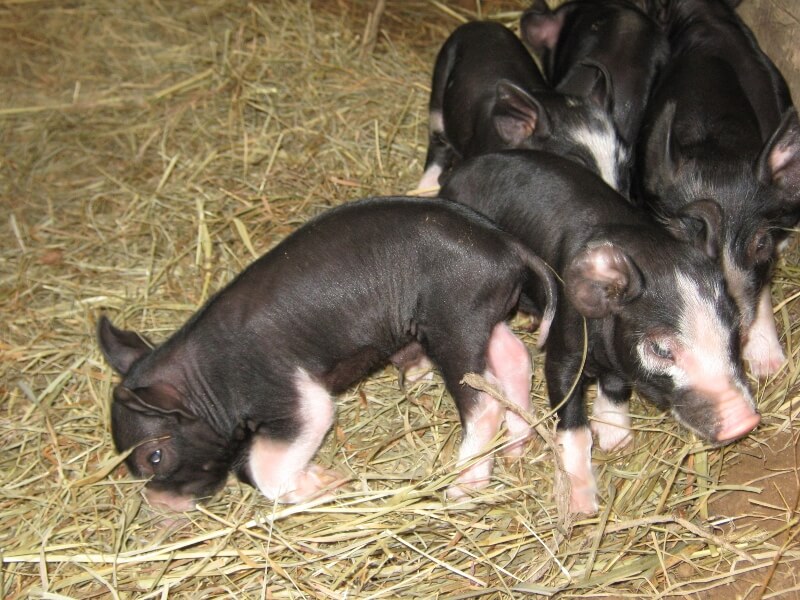
Normally, we breed in the spring when the weather warms. But we made the decision to breed Miss Piggy in the fall for a winter delivery, because she was beginning to grow too old to deliver piglets.
A winter delivery has pros and cons. The cold makes it easier on the mother, because she won’t overheat when trying to deliver. However, you will need to make sure that the piglets and sow are warm after the birth.
We try to place our piglets in good homes. That means we ask if they will be pastured. Even if we know they will be meat for someone’s table, we want to know that they will be well taken care of up to that time.
Susan Tipton-Fox and her husband Alan Fox practice farming and preserving the way they were passed down by her family. She presents on-farm workshops in Yancey County, North Carolina, and workshop stays on the farm. Follow her on Facebook at The Mushroom Hut @ Fox Farms.

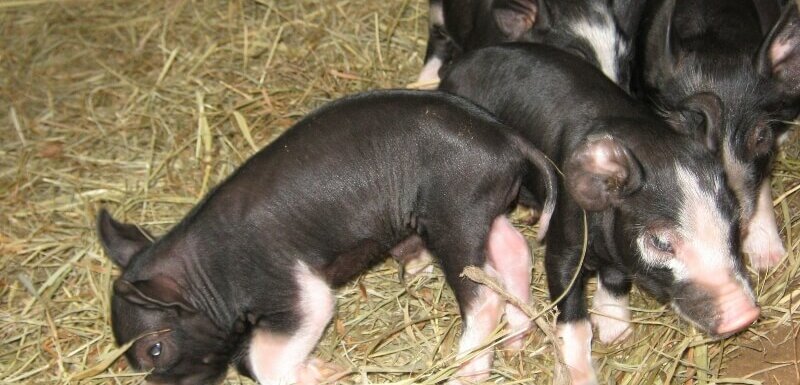












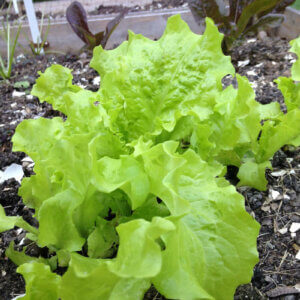






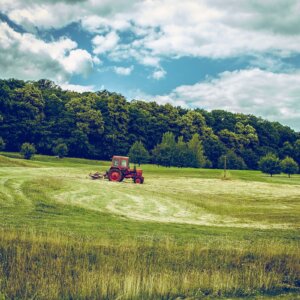
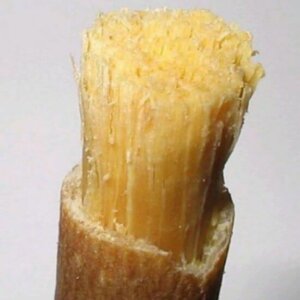











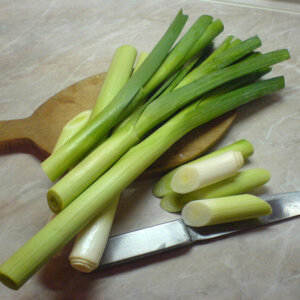

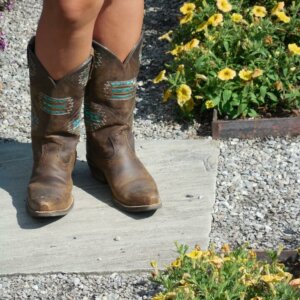



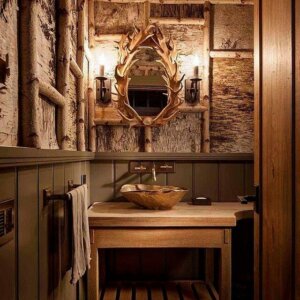

Hello! Thank you for sharing this information, we will be getting two berkies for food. They will be pasture raised. I noted you said you did not vaccinate. Is there a different recommendation when raising them for meat? Thank you for your time!
I have started my piggery with 2 female Landrace s, I would love to get to a stage where I can have the Birkshires in my pig farming.
Thank you